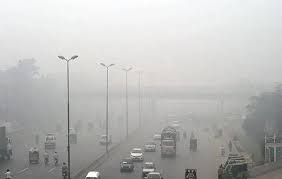Harmattan is an annual season that occurs in this part of the world. It is a season that comes around late November to mid March of every year.
Harmattan brings with it hot, dry air, dusty winds and thick hazes that blow across West Africa from the Sahara desert which it can transport hundreds of miles out over the Atlantic ocean and it also comes with certain diseases.
This season as uncomfortable as it gets, brings with it sweet comfort night sleep especially in part of the country that experience heat of over 38 degrees like the Saharan regions. This season comes with its unfavourable parts.
Harmattan is always associated with cold and humidity as low as 15% in the atmosphere as a result the skin and body are affected. The skin becomes dry and the lips crack that comes with pains or to some people the affected area bleeds. Studies have shown that most micro-organisms abound during this period and come with different diseases.
Harmattan comes with certain great dangers associated with great risk to humanity. Some of these risks include fire outbreaks, poor visibility due to haze, food borne diseases, cough, dry skin and asthma.
Asthmatic patients are advised to always carry or move with their inhalers because they are highly prone or predisposed to frequent asthmatic attacks in this season. The air not only carries dust, it also carries antigen and other allergens that aggravate respiratory tract infections, eye irritations, pneumonia, catarrh, cough and other ailments.
People are advised to take more liquid especially water during harmattan to prevent dehydration and heatstroke, people should limit their exposure to dust by wearing either nose mask or a veil.
Fire outbreaks constitute one of the greatest risks that occurs at the slightest ignition which can cause a great loss of life and property. People should be careful on where they burn things and leaving fire unattended. Fruits and vegetables which are gotten or bought from street hawkers or stalls should be properly washed before eating and food hawkers or stalls should imbibe healthy food preservation culture.
Another way to cope with extreme cold weather is to dress appropriately covering your exposed areas with scarves, gloves and appropriate footwears which are helpful.
Hyelhira Nuhu,
Department of Mass Communication,
University of Maiduguri, Borno state




